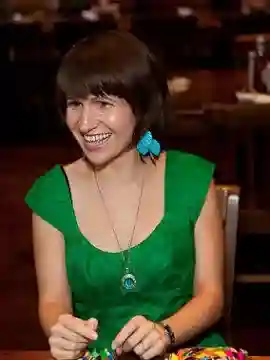Welcome to a new feature at LitReactor, in which we introduce you, the reader, to a must-read book that is perhaps unfamiliar to you. I’d like to kick off this feature with a book I have long loved, the fascinating biography Strange Angel: The Otherworldly Life of Rocket Scientist John Whiteside Parsons by George Pendle.
This month Paul Thomas Anderson’s The Master is released, a film fictionally based on the origins of Scientology and its founder, the enigmatic L. Ron Hubbard. In it, Philip Seymour Hoffman plays Lancaster Dodd, a charismatic man who establishes a 20th century religious movement based on the principles of governing and purifying oneself in order to reach one’s highest potential. Joaquin Phoenix plays Freddie Quell, a brilliant, alcoholic, young man with loads of potential but a tumultuous temperament whom Dodd takes under his wing.
The film (which I haven’t yet seen but am ardently anticipating) has put me very much in mind of Strange Angel, a book I hadn’t picked up in years before my recent re-read in honor of The Master. In it, rocket scientist turned occultist John Parsons lives a tumultuous life and throws himself under the tutelage of a pre-Scientology L. Ron Hubbard, who was at the time only a reader and writer of science fiction, much like Parsons himself. And though I haven’t seen The Master, I can only imagine that the relationship between Dodd and Quell will turn out as bleakly as that of Parsons and Hubbard.
The book is riveting, telling the nearly impossible yet somehow true life of Parsons, who began his career as a blue collar worker at a chemical factory before faking his degree from the California Institute of Technology in order to become one of the principal founders of the Jet Propulsion Laboratory and Aerojet Corp. Parsons loved science fiction as a kid, and he believed in the possibility of rocket propulsion while most of the best scientific minds in the world disregarded it as an unattainable fiction.
Through knowledge garnered by his work at chemical labs and by unremitting research and his own natural aptitude for all things scientific, Parsons saw his passion for rocket science grow into a reality, pioneering space travel through his work at the JPL. After developing solid fuel, Parsons and his peers ushered in the age of rockets.
Strange Angel makes the compelling argument that because Parsons was able to prove possible something that everyone said was impossible, it’s perhaps no wonder that he began to believe the same of other impossibilities. Namely, Parsons became deeply involved in the occult and the teachings of Aleister Crowley, who selected Parsons to lead Agapé Lodge, the headquarters of the magical order of Ordo Templi Orientis (OTO). Parsons’ preoccupation with black magic and the occult led to his losing the mantle of the scientific community’s Golden Boy, but Parsons had no interest in impressing the same close-minded scholars who held him in contempt when he first expressed a belief in rocket science.
It’s at this point in the narrative that Parsons meets a young L. Ron Hubbard, the charismatic science fiction writer in the periphery of all the same circles in which Parsons revolved. And this is where the story, always fascinating, gets really juicy. Parsons invited Hubbard to move into the commune where he lived and loved a beautiful young woman named Betty, to whom Hubbard took an immediate fancy. Parsons worshipped Hubbard and thought that he had great magical powers. After their introduction, Parsons wrote excitedly to Crowley:
About 3 months ago I met Capt L Ron Hubbard, a writer and explorer of whom I had known for some time. He is a gentleman, red hair, green eyes, honest and intelligent and we have become great friends… Although he has no formal training in Magick he has an extraordinary amount of experience and understanding in the field… He is the most Thelemic person I have ever met and is in complete accord with our own principles.
(Thelema is the philosophy touted by Crowley, a spiritual tenet embracing the ideas of true will, sexual desire and cosmology.)
As much as I want to tell you what happens once Hubbard makes himself comfortable in Parsons’ life, I cannot bring myself to spoil you on the salacious – and by all accounts except Scientology’s, true! – gossip contained within these thrilling pages. A very short time after Hubbard disappeared (with a bang!) from Parsons’ social circle, he published an article titled “Dianetics – The Evolution of Science” for the May 1950 edition of Astounding Science Fiction.
The article, promising “to transform the reader’s ‘normal’ brain into an ‘optimum’ brain and thus help man ‘continue his process of evolution toward a higher organism’” was exceptionally popular among readers, and within months, Hubbard had published his first Dianetics book and Scientology was firmly established. Parsons, meanwhile, faded into relative obscurity. There is a very good chance you’ve never even heard of the man, even though he was one of the inventors of rocket science.
That is why Strange Angel is such a critical read. Not only is it a blast (pun intended), it informs the reader about one of the most fascinating and inscrutable men of science – and science fiction. Strange Angel is non-fiction, but it reads as fast and fun as any beach blanket novel. With The Master in theaters this month, what better time to acquaint yourself with this terrific book?

About the author
Meredith is a writer, editor and brewpub owner living in Houston, Texas. Her four most commonly used words are, "The book was better."








